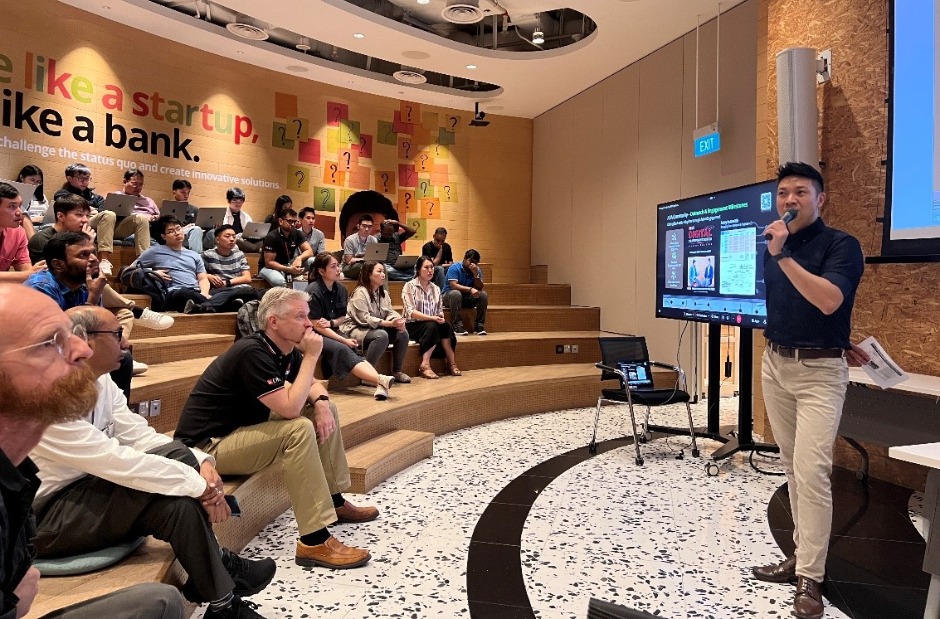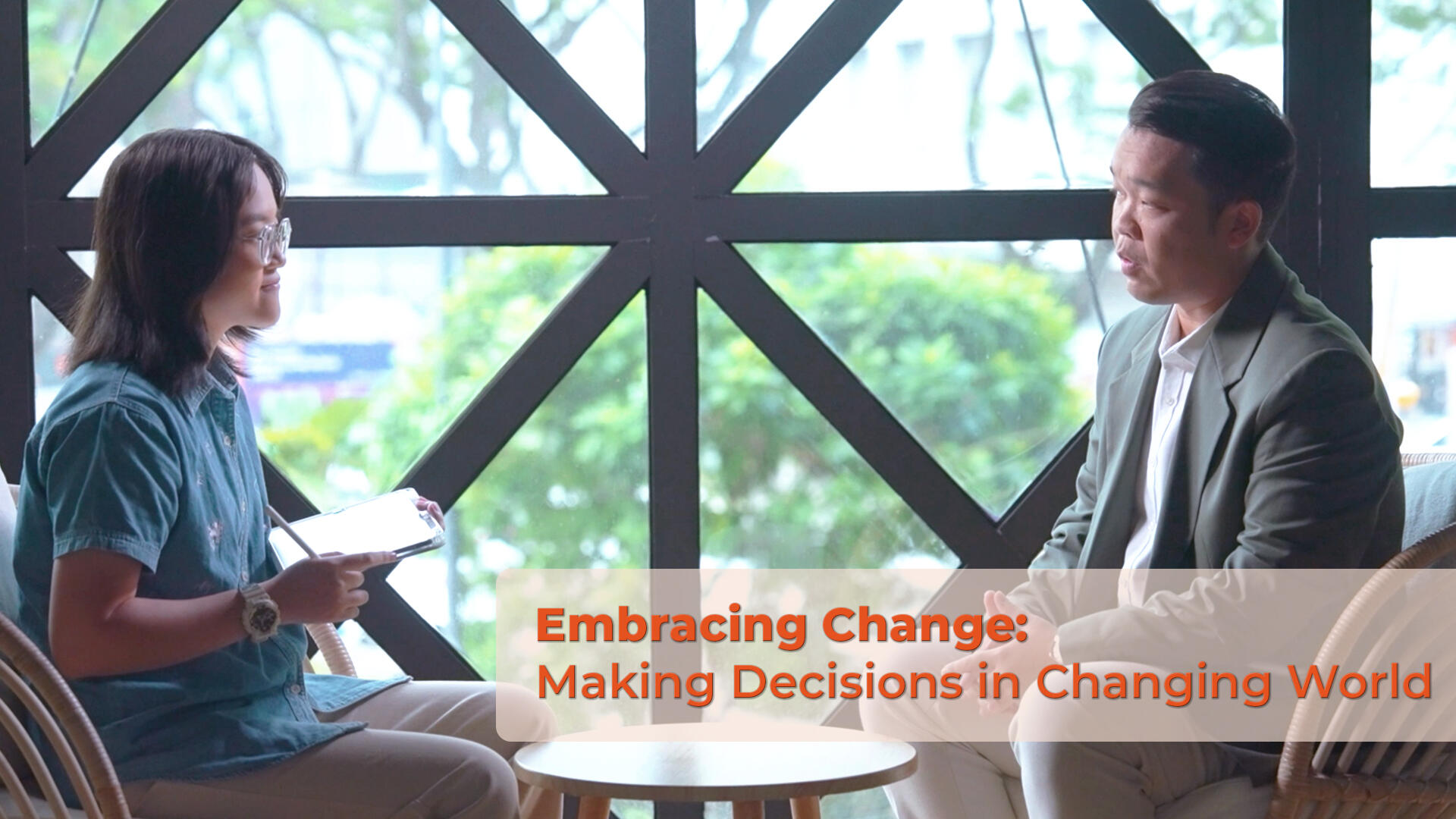Ready to dive into the world of emerging industries and unlock exciting job opportunities?
Whether you are a fresh graduate eager to explore new horizons or someone looking to reskill and keep pace with the times, we’ve got you covered with these polytechnic and ITE courses.
With more than a decade’s worth of career coaching experience and insights into the job market, SkillsFuture Singapore Skills Ambassador, Mr Razali Bin Asim shares that some of the most in-demand jobs can be found in the Green, Digital, Care and Industry 4.0 sectors, which are currently among the fastest growing industries in Singapore.
Picture yourself designing a solar-powered building, solving puzzles with data or even going into a helping profession? What about translating information to bits and bytes?
Check out what the hottest jobs are and the courses that will give you a peek into these career opportunities. Designed for beginners, these short courses are the perfect entry point for anyone intrigued by the emerging industries.
The Green Economy
The job: Sustainability Engineer
Job description: Become the guardian of our planet by designing sustainable solutions
Skills required: Analytical thinking and reasoning, critical thinking, project management, problem solving
The course: Understanding Sustainability: What and Why?
Course provider: Singapore Polytechnic
Interested in sustainability and why organisations should go green? This course will clue you in on the latest trends, best practices and emerging technologies in energy sustainability.
You will explore how different industries have embraced the
Singapore Green Plan – a comprehensive sustainability roadmap for Singapore – and learn how organisations are adopting green technologies and practices for sustainable living. Plus, uncover the human side of sustainability, such as the protection and prioritisation of human rights and well-being. By the end of the course, you will apply what you have learnt in a hands-on project tailored to industry-specific sustainable practices.
For more information, click
here.
What does it take to succeed as a Sustainability Engineer?
Sustainability engineers design products, buildings and systems that reduce environmental impact by using more efficient and fewer resources. To achieve this, Mr Razali says that aspiring sustainability engineers should “remain updated on industry trends and the latest advancements in sustainable technologies, materials, and practices to better meet the market’s evolving needs and take advantage of emerging opportunities”.
He adds that success in sustainability engineering involves not only technical expertise but also a deep commitment to creating a positive impact on the environment and society. To shine in this field, he suggests becoming well-versed in the concept of the green economy and understanding how the Singapore Green Plan fits into it.
The Digital Economy
The job: Data Analyst
Job description: Dive into an ocean of data to extract valuable insights
Skills required: Analytical thinking and reasoning, data visualisation, decision making, problem solving
The course: Fundamentals of Data Analytics
Course provider: Republic Polytechnic
For many people, data analytics may seem like a complicated concept. But in essence, it is the process of sorting through and interacting raw data to find meaningful patterns.
In this short introductory course, you will gain an understanding of what data is and why it is crucial to safeguard it in our data-driven age. Explore the significance of critical thinking and problem-solving skills in data analytics territory, while gaining practical experience with widely used data analytics platforms such as Excel, Tableau, IBM Cognos Analytics, and more.
For more information, click
here.
What does it take to succeed as a Data Analyst?
Based on a LinkedIn
article, a statistical study projects a 25 per cent growth in data analyst job opportunities by 2029, driven by a surge in demand.
Being a data analyst is essentially like being a detective, the modern-day Sherlock Holmes. This role is great for individuals with curious minds who love solving everyday puzzles.
In the world of data analysis, a data analyst’s core mission is to collect and interpret data, identify trends and patterns and provide actionable insights, eliminating guesswork from decision-making. But there’s more to it than meets the eye. Mr Razali says, “Making sense of raw data is not enough. You will need the know how to visualise and present the data to stakeholders in a way that they understand to ensure buy-in.”
For a targeted career in finance or healthcare for example, Mr Razali says that it is essential to for aspiring data analysts to gather domain-specific expertise to make more relevant and insightful analyses. “Understanding industry-specific challenges will elevate your effectiveness as a data analyst,” he explains.
The Care Economy
The job: Professional Caregiver
Job description: Be a pillar of support in times of uncertainty and need
Skills required: Active listening, communication, organisation skills, problem solving
The course: CoC in Dementia Care & Smart Solutions
Course provider: Institute of Technical Education
Building strong and therapeutic relationships with dementia clients is at the heart of this course. You will learn practical strategies for managing challenging behaviours, how to assist with therapies, and even how to lead fun and engaging group activities, including memory games, sensory experiences, and coordination exercises.
The programme will also cover palliative care for people with dementia while emphasising the importance of self-care for both clients and caregivers. To top it all off, the course also covers exciting smart solutions and assistive technologies that can make the caregiving role even more effective and rewarding.
For more information, click
here.
What does it take to succeed as a Professional Caregiver?
As Singapore’s ageing population grows, so will demand for professional caregiving services for the elderly. One in 10 seniors aged 60 and above in Singapore has dementia, according to a study by the Institute of Mental Health. By 2030, it is estimated that 150,000 people will have dementia.
Up-to-date knowledge and education are crucial in caregiving roles, Mr Razali shares. “The caregiving field is dynamic. Caregivers must remain open to learning new techniques, staying updated on best practices, and pursuing professional development,” he adds.
Being a successful caregiver requires displaying empathy and compassion, actively listening to the needs and concerns of the person you are caring for and communicating with clarity and respect. Since care recipients may have diverse needs and abilities, patience and understanding are also essential qualities.
Lastly, caregivers must prioritise their own well-being, as burnout is a genuine concern in this profession. As such, self-care practices are vital for maintaining physical and emotional health, Mr Razali says.
Industry 4.0
The job: Digitalisation Executive
Job description: Lead the charge in the dynamic world of digital transformation
Skills required: Change management, digital literacy, financial fluency, subject matter expertise, unicorn translation (being able to translate IT jargon into simple language for non-experts)
The course: Digitalisation for Everyone
Course provider: Republic Polytechnic
Keen to dip your toes into the vast world of emerging digital technologies? This course will come in handy.
Learn how various digital technologies, including Robotic Process Automation (RPA), Machine Learning (ML), data analytics, and cloud-based solutions, can co-exist with and complement existing work processes. Participants will also get insights into real-world use cases that illustrate how these technologies can be implemented in the workplace to drive digitalisation initiatives.
For more information, click
here.
What does it take to succeed as a Digitalisation Executive?
In a
blog article published by IMDA, as of February 2023, 93 per cent of companies in Singapore had adopted some form of digital technology, marking an increase of 19 percentage points from 2018.
A digitalisation executive’s daily routine involves managing and optimising digital tools, platforms, and processes for streamlined workflows. They must also champion technological change within their organisation to promote efficiency.
Succeeding in the digital age demands staying current with cutting-edge technologies and trends. As such, Mr Razali’s advice is to “be open to change and remain flexible as technology evolves”.
The ability to identify pain points and effectively address them through digitalisation will position individuals at the forefront of innovation, he says.
Furthermore, those who can effectively bridge the gap between business jargon for IT teams and IT jargon for business teams, are also more likely succeed, he adds
For more stories on lifelong learning:
.jpg)



.jpg)

